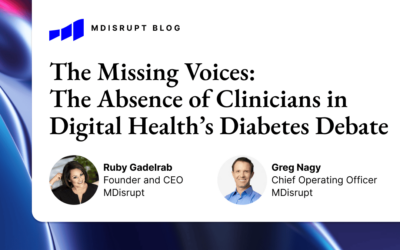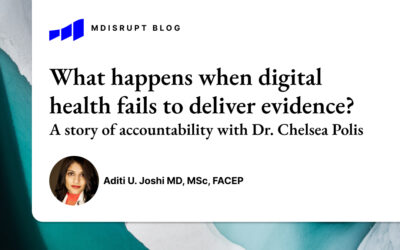Women’s health is finally starting to get more attention from innovators and investors—but there’s still a long way to go. As a female-founded company, we’ve long been focused on the urgent needs in this area. After speaking with numerous women’s health investors, innovators, and advocates at the Current State of Women’s Health Roundtable (sponsored by Goodwin’s Women’s Health+Wellness practice) and within our own network, we’re encouraged by the small wins, but know there are large opportunities and challenges that still need to be addressed. Here are some key takeaways.
Women’s health is for life—not just for reproduction.
An article by our webinar moderator Chrissy Farr, principal at OMERS Ventures, points out that a woman’s reproductive years make up only about 30 of a typical 80-year lifespan—yet that’s where most investment tends to focus.
Farr and other webinar panelists emphasized that there are big unmet health needs all through a woman’s life, and that innovators and investors who take a broader, more holistic view of women’s health will find many more opportunities to make a difference. Yet in the first nine months of 2021, only about 7 percent of venture funding in digital health was directed to women’s health.
Investors and innovators should look for the “white space.”
This phrase came up often during the Goodwin Roundtable; it refers to areas that have traditionally been underfunded but which offer major possibilities for improving health and meeting market needs.
Menopause care is one “white space” that is ripe for disruption. There are 50-some different symptoms that women may experience, which means that there are many entry points for improving care. Other major areas of unmet need include behavioral health, osteoporosis, endometriosis, and cardiac health.
Early detection of ovarian and uterine cancers is another white space; many of the companies focused on early cancer detection (e.g. Grail, Exact Sciences, Guardant) focus primarily on colon cancer. Women’s health needs its own early detection solutions.
To pitch women’s health to investors, focus on normalization and storytelling.
On normalization: It’s natural for investors to relate most easily to innovations that address issues that they’ve experienced personally—which can be problematic when most investors are men. (And unfortunately, that remains the case: Last year, only 2 percent of venture funding went to female-founded companies, the lowest amount since 2016.)
Successful founders find ways to make women’s health issues relevant to men. “Even if men can’t relate to a particular health issue personally, surely they know that it affects them by way of the women in their lives,” said Kaitlin Christine, founder and CEO of Gabbi.
On storytelling: Showing how a solution can affect individual lives is important, but so are numbers: Emphasizing the market potential in areas that an investor may not be familiar with can break through a sense of indifference or irrelevance, said Marina Pavlovic Rivas, founder and CEO of Eli Health.
Involve clinicians early and often
As in other areas of digital health, it can be challenging to introduce a new women’s health technology into a clinical environment. “It’s step by step,” said Pavlovic Rivas, of Eli Health. “If it’s not on the market, you need to validate that there is an unmet need. Then involve clinicians in evidence generation for the technology, and for application of the technology into the environment where it will be used. And you need to do that work pre-market.”
Remember that women’s health affects everyone.
“I think we are on the cusp of a transition to a broader recognition that women’s health issues are human health issues and affect all of us.” – Paxton Maeder-York, founder and CEO of Alife Health.

Mona Schreiber, VP of Marketing, MDisrupt
Mona is a marketing leader with over 15 years b2b experience developing new healthcare markets. Prior to joining MDisrupt, she was an early marketing lead at Invitae Inc, where she helped scale the company from small startup to market leader in the nascent genetic testing industry. She brings with her a deep understanding of global markets from her international marketing work at Invitae and Affymetrix.
At MDisrupt we believe that the most impactful health products should make it market quickly. We do this by uniting digital health companies with experts from the healthcare industry to help them accelerate their time to market responsibly.
Our expert consultants span the healthcare continuum and can assist with all stages of health product development: This includes regulatory, clinical studies and evidence generation, payor strategies, commercialization, and channel strategies. If you are building a health product, talk to us.



